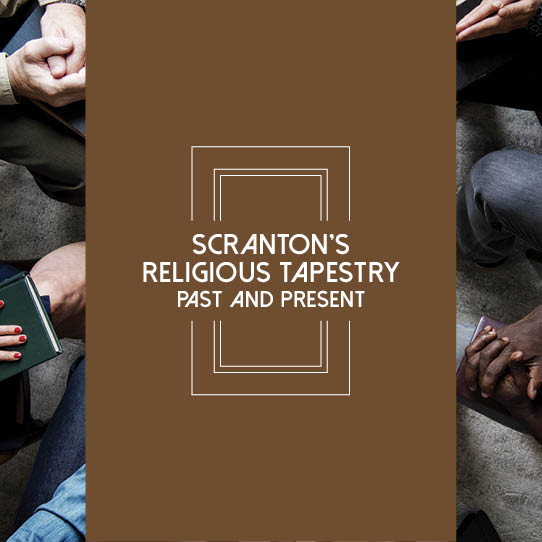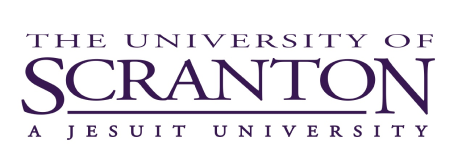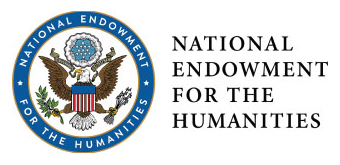Scranton’s Religious Tapestry: Past and Present

This theme focuses on the longstanding and continued role of religious institutions in the life of early immigrant communities, and the ways in which different ethnic communities brought with them not only their language and skills, but also their religion and culture.
These communities lived in towns in the Lackawanna Valley and in particular sections of Scranton. Through ethnically-based churches, businesses and civic associations, they created distinct neighborhoods.
This tapestry of Scranton neighborhoods continues today, now with new communities joining longtime ones. One example of this trend is the addition of Masses and other services in Spanish at longstanding Catholic churches. This provides worship opportunities for the city's fastest-growing newer population – families and individuals of Latin American heritage.
This theme will highlight how immigrants’ common religious heritage galvanized these various communities and neighborhoods, helping to preserve their history, cultural heritage and practices amidst the expanding pluralism of the city as a whole. Participants will study Scranton as a place-based text, with these institutions providing ethnic, cultural, religious and immigrant history.
Events & Activities
Events for this seventh project theme will take place from April 2023 - June 2023.
Caminemos con Jesús: Incarnating Hispanic/Latinx Theology in Song
On April 19th, the first theme event will explore sacred music and the diverse realities of contemporary culture, with a focus on Scranton’s Latino/a communities,in a humanities lecture and musical reflection with Cuban American musician Tony Alonso.
Places of Worship Bus Tours on May 7 and May 13 there will be 2 bus tours of Scranton’s religious institutions, including Catholic, Black Protestant, and Eastern Orthodox churches, Jewish and Hindu temples, and Muslim mosques.
Humanities Resources
Albright Library's Lackawanna Valley Digital Archives
Resource include sections of community and church cookbooks, highlighting ethnic foods and recipes from Scranton community members; digitized community histories published for anniversary events; including sections on religion and churches.


